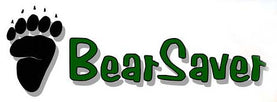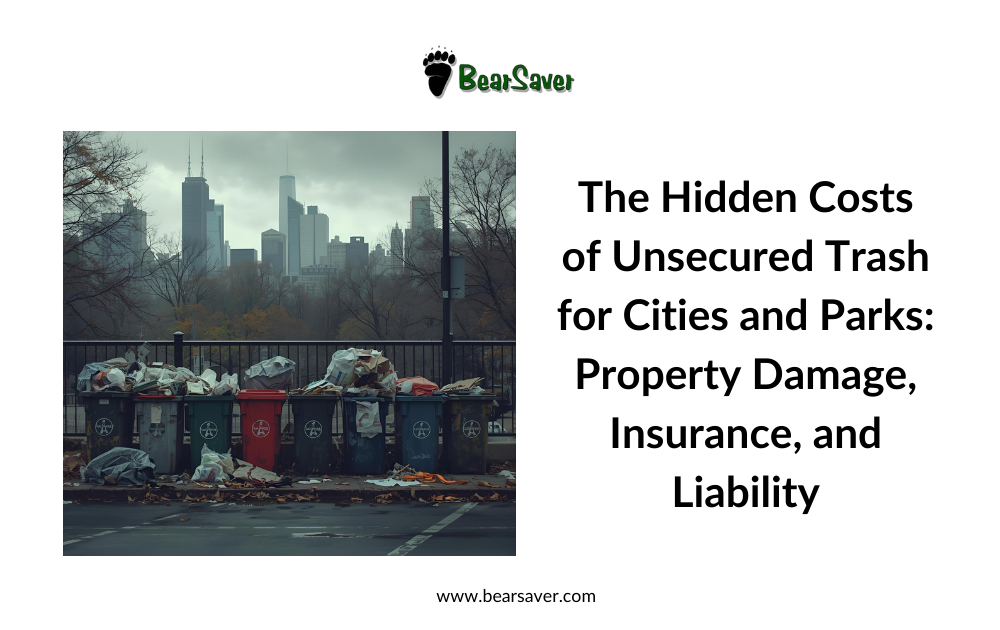The Hidden Costs of Unsecured Trash for Cities and Parks: Property Damage, Insurance, and Liability
Posted by Securr Blogger on
For municipalities and park systems, waste management is often seen as routine. Yet unsecured trash bins create ripple effects that extend far beyond litter. From property damage to rising insurance premiums and liability claims, the costs add up quickly—and many of them are preventable.
When wildlife gains access to unsecured waste, the consequences reach both human and animal communities. Poor trash management exposes cities to financial losses, safety risks, and reputational harm. Forward-thinking municipalities are turning to secure, animal-proof enclosures to mitigate these challenges.
Property Damage from Wildlife Intrusion
Animals that associate trash with food can cause extensive damage:
-
Containers: Standard receptacles are often destroyed by bears, raccoons, or coyotes determined to pry them open.
-
Park Infrastructure: Benches, fences, signs, and landscaping are frequently damaged during repeated scavenging.
-
Maintenance Costs: Staff hours are wasted on repeated cleanups and repairs that could have been avoided with secure waste systems.
The ongoing repair cycle drains budgets and diverts labor away from higher-priority projects. Over time, a modest investment in animal-resistant containers can save municipalities thousands in unnecessary repairs.
Insurance and Liability Risks
The financial toll of unsecured trash isn’t limited to repairs—it also affects insurance and liability:
-
Vehicle Collisions: Trash attracts animals into roadways, leading to accidents. Municipalities may be held partially responsible.
-
Slip-and-Fall Claims: Food waste and debris on walkways increase injury risks, opening cities to costly lawsuits.
-
Fire Hazards: Overflowing trash is more susceptible to ignition in dry conditions, exposing municipalities to both legal and insurance complications.
Insurers view recurring incidents as negligence, which can raise premiums or even result in denied claims. Animal-proof waste systems demonstrate proactive risk management, potentially helping cities control insurance costs.
Protecting Public Trust and Safety
Public spaces must feel safe and clean to be inviting. Overflowing bins or visible wildlife scavenging can erode trust in city services and discourage tourism. Even worse, habituated animals often become aggressive, posing dangers to visitors.
When wildlife becomes food-conditioned, relocation or euthanasia is often required—an outcome that is both costly and damaging to a city’s reputation. Secure trash practices are essential not only for safety but also for preserving wildlife populations.
Long-Term Cost Benefits of Secured Trash
While animal-resistant enclosures involve upfront investment, they deliver long-term savings by:
-
Reducing cleanup and maintenance labor.
-
Preventing repeated container replacement.
-
Minimizing liability payouts and insurance hikes.
-
Improving public perception and park usage.
Cities that implement secure trash strategies report fewer maintenance callouts and reduced risk exposure, proving the financial case for upgrading waste systems.
A Practical Example: BearSaver BE1-P
 BearSaver, a leading manufacturer of animal-proof commercial trash enclosures, offers municipalities proven solutions to these problems. One example is the BE1-P, a durable, ADA-compliant 70-gallon container engineered to keep wildlife out while remaining user-friendly for the public and maintenance staff.
BearSaver, a leading manufacturer of animal-proof commercial trash enclosures, offers municipalities proven solutions to these problems. One example is the BE1-P, a durable, ADA-compliant 70-gallon container engineered to keep wildlife out while remaining user-friendly for the public and maintenance staff.
Products like the BE1-P demonstrate how smart design directly translates into fewer incidents, lower costs, and safer communities. While not the only option available, such solutions showcase how simple preventive measures can protect both budgets and ecosystems.
Conclusion: Prevention Pays
Unsecured trash may seem like a small issue, but its hidden costs—property damage, insurance complications, and liability risks—can strain city and park budgets. By investing in animal-proof trash enclosures, municipalities not only save money but also protect residents, visitors, and wildlife.
Smarter waste management is a long-term investment that pays for itself many times over.
Contact BearSaver Today
To explore solutions for your city or park system, contact BearSaver:
Call: 800-851-3887
Email: sales@bearsaver.com

